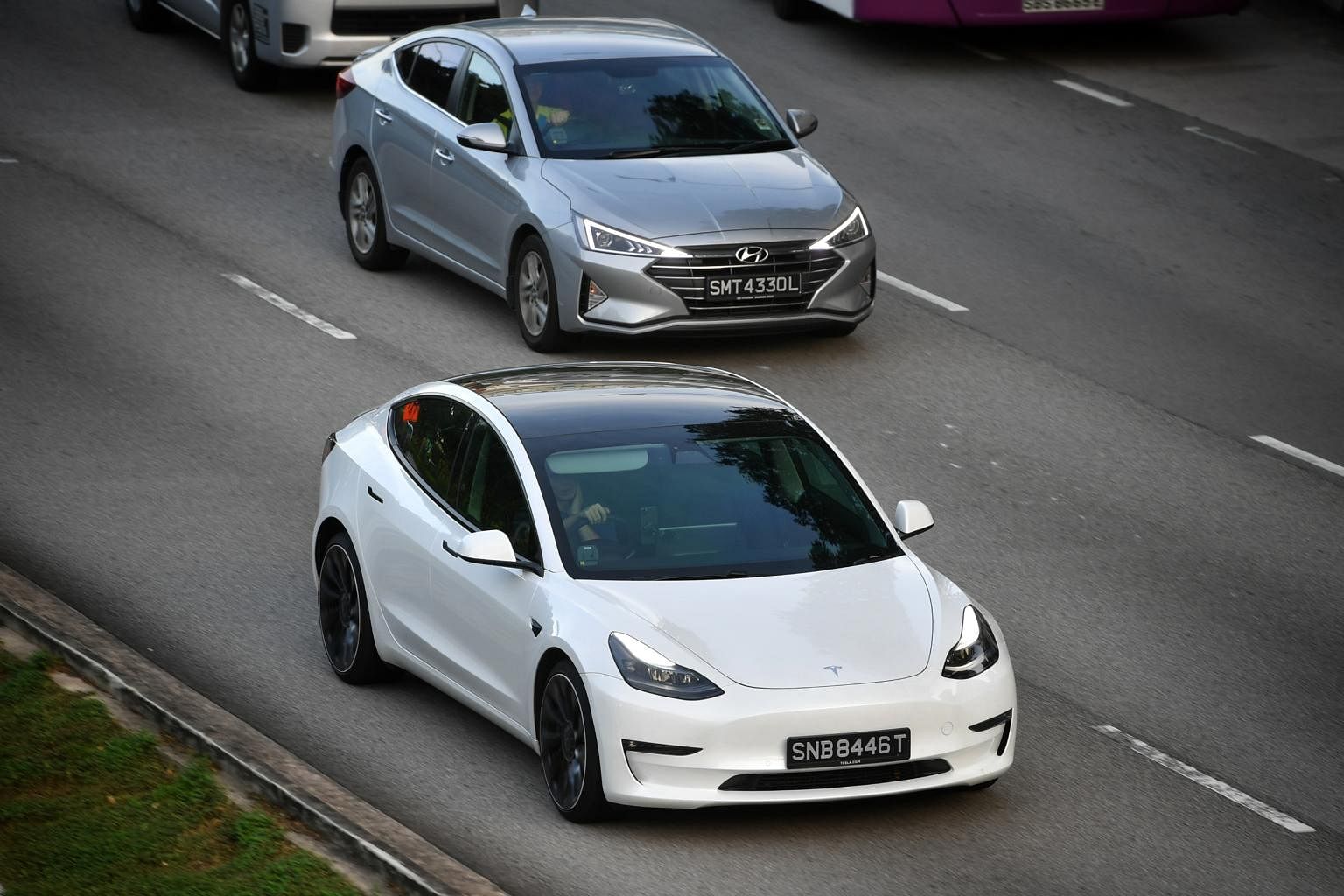Introduce individual carbon scorecard with incentives to keep emissions low: Panellist
Sign up now: Get ST's newsletters delivered to your inbox

Finance Minister Lawrence Wong said Professor Sumit Agarwal’s idea of a carbon scorecard for individuals was a good idea.
ST PHOTO: CHONG JUN LIANG
Follow topic:
SINGAPORE - To encourage individuals to keep their carbon footprint low, Singapore could introduce a carbon scorecard linked to rebates or lower mortgage interest rates, said a panellist at a post-Budget roundtable discussion on Monday (March 14).
Economics, finance and real estate professor at the National University of Singapore Sumit Agarwal said that since the Republic has taken leadership in outlining its plans to raise carbon tax on corporations, it could also lead efforts in doing the same for individuals.
In the Budget delivered on Feb 18, it was announced the carbon tax rate in Singapore would increase from the current $5 per tonne of emissions to between $50 and $80 by 2030, with an aim for emissions to dwindle to net zero by or around 2050.
At the roundtable organised by The Straits Times and The Business Times on Monday, Prof Agarwal said: "Having carbon tax on corporations is one thing, but the ultimate users or creators of carbon are the individuals."
Imagine if Singapore created a carbon scorecard for individuals, which would help to identify those who could be given a carbon rebate, he said.
For example, if their carbon footprint was low because they eat fish or lentils, they could get an income tax rebate from the Government, as they are cross-subsidising those eating food with high carbon footprint such as meat, said Prof Agarwal.
They could also be given the option of green financing, he said, with banks offering those with low carbon scores cheaper credit on mortgages.
He also raised the idea of a carbon tax for consumers instead of corporations, "because when the tax is salient to consumers, they pay more attention and respond to it better".
A carbon tax on the consumer would also result in peer effects, said Prof Agarwal.
"People talk about it, oh, my carbon footprint is X, yours is Y, so let me try to bring it down to your level. So I think that gamification will also help all of us try to bring down our carbon footprint," he said.
Finance Minister Lawrence Wong said it was a good idea.
"It's something we continue to study and see how we can really bring it down to the individual consumption level," he said.
The Government is already using the "carrot and stick" system of fees and rebates in certain aspects.
For example, it is done in regards to electric vehicles, where there are incentives if people choose a cleaner vehicle and a "stick" if they choose the dirtier option, said Mr Wong.
But another aspect, apart from a carbon tax or other incentives, is to establish standards, he said.
Having regulatory standards to phase out things that are dirty or inefficient would also simplify choice - in fact, he said, there is not much choice in the long run.
"Eventually, we will phase out internal combustion engine vehicles and energy inefficient home appliances. And I think that with a combination of these different tools - taxes, incentives and standards - we can achieve our net zero ambitions."

